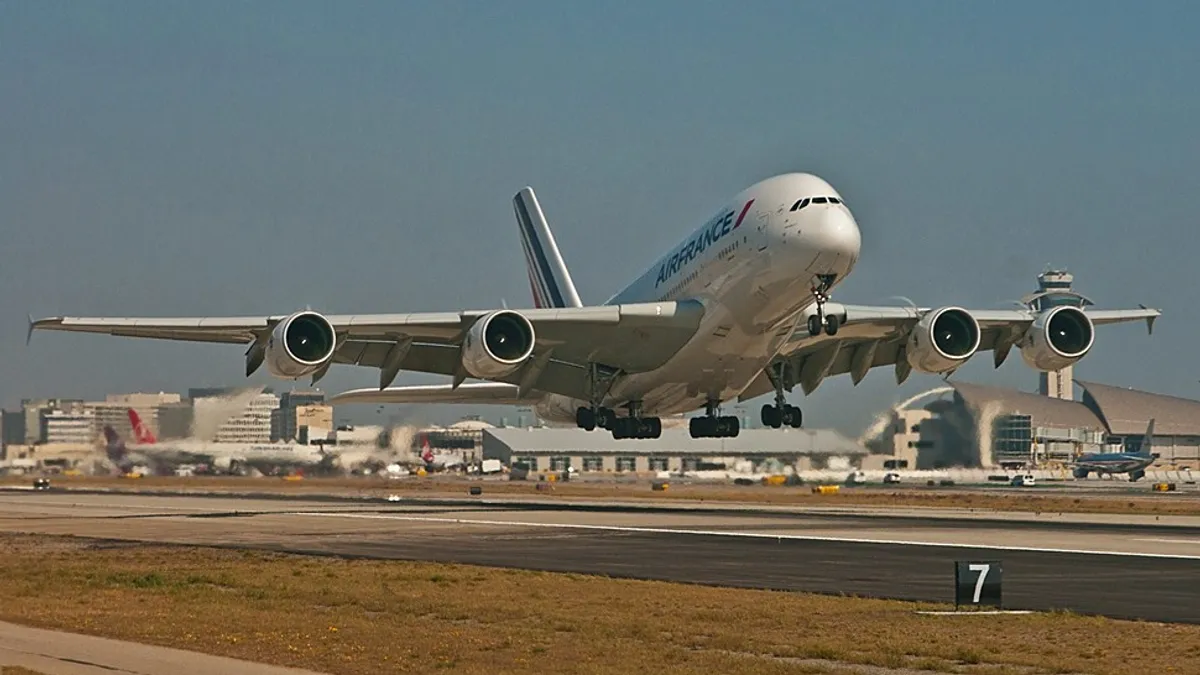Dive Brief:
- The Los Angeles Bureau of Sanitation (LA Sanitation) and Los Angeles World Airports recently announced a new organic waste recycling pilot program that will take place at Los Angeles International Airport (LAX).
- Food scrap diversion will start at four different establishments — a sit-down restaurant, fast food counter, coffee shop and a lounge — across two terminals. If successful, the program could eventually be expanded to all 108 establishments in LAX's nine terminals.
- Once the material is collected by airport staff, LA Sanitation will transfer it to an anaerobic digestion facility for conversion into renewable natural gas and liquid/solid soil amendments.
Dive Insight:
This plan aligns well with California's commercial organics diversion mandate, Los Angeles' goal of 95% diversion by 2025 and the city's recently approved franchise system. Last week, the Los Angeles Board of Public Works also voted unanimously to establish a new Zero Food Waste Task Force that will focus on reducing and recovering wasted food in the city.
Waste diversion is a common challenge at airports for a variety of reasons and many have taken steps toward improving their efforts with varying degrees of success. Last year, the Austin-Bergstrom International Airport in Texas reported it had reduced landfill waste by 13% whereas Atlanta's Hartsfield-Jackson International has struggled to find the right contractor to run an on-site recycling facility for years. London's Gatwick Airport recently received attention for opening what it says is the world's first waste-to-energy facility for both airline and terminal waste.
Since the city appears to have a processing facility lined up, with a fair amount of existing capacity in the region, the biggest potential hurdle for this pilot may be the source separation itself. Finding adequate space for separate containers and training employees to make food waste diversion a habit can sometimes be challenging. Starting at four different types of establishments will provide a useful range of feedback before LAX potentially expands the program on a larger scale.















